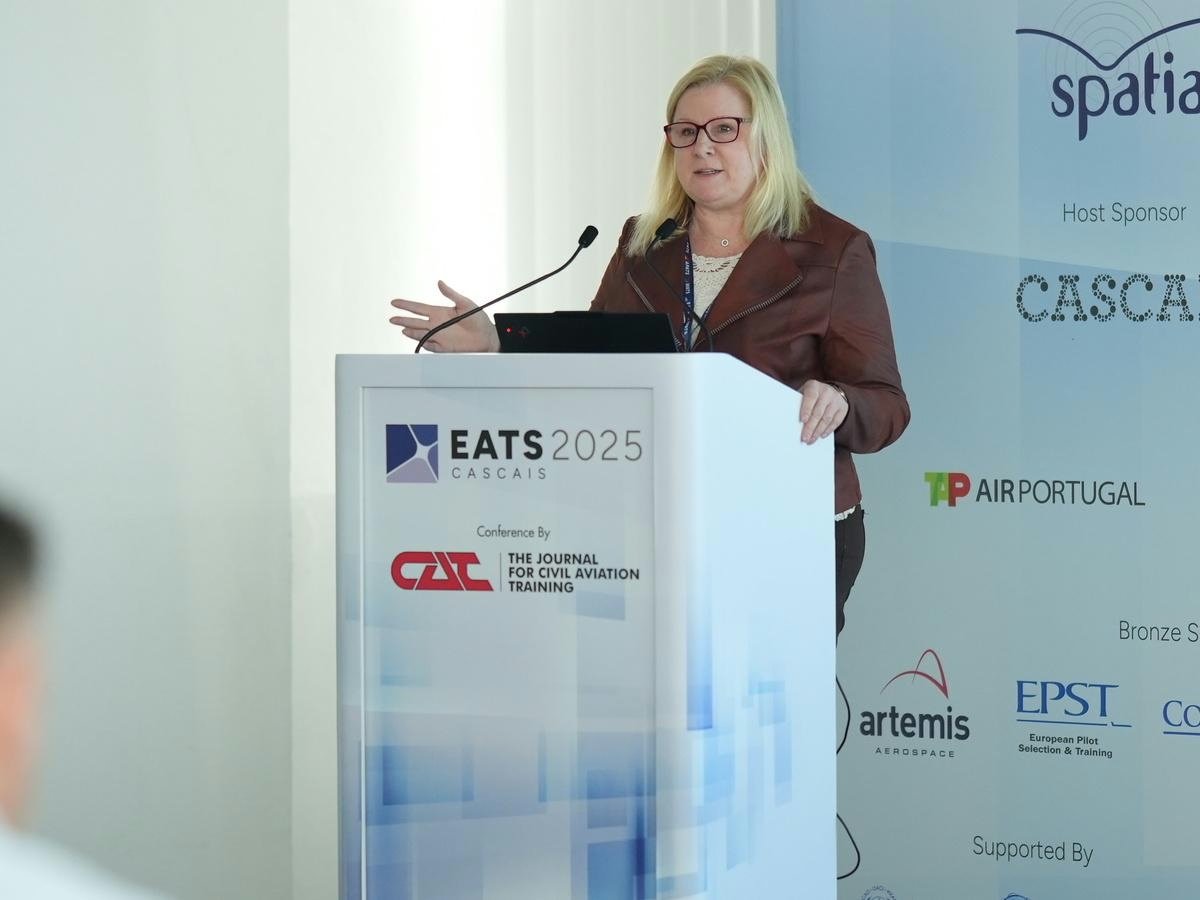AeroGenie — Your Intelligent Copilot.
Trending
Categories
Aviation Training Advances Highlighted at EATS 2025 in Cascais

Aviation Training Innovation Takes Center Stage at EATS 2025 in Cascais
The 23rd European Airline Training Symposium (EATS) held in Cascais marked a significant milestone for the aviation training sector. Industry leaders reported highly productive discussions, reinforced partnerships, and a notable surge in interest surrounding next-generation training technologies. Throughout the event, from the exhibition floor to conference sessions, the focus remained firmly on artificial intelligence (AI), immersive virtual and extended reality (VR/XR) solutions, competency-based training (CBTA/EBT), and data-driven methodologies, underscoring a rapidly evolving industry landscape.
AI and Digital Transformation in Aviation Training
Artificial intelligence emerged as the predominant theme at EATS 2025, with widespread agreement that its full potential hinges on the prior digitisation and automation of foundational processes within organisations. Once these prerequisites are met, AI is expected to significantly enhance various aspects of training, including assessment, feedback, documentation, personalisation, and overall quality. Attendees regarded the symposium as an essential forum for gaining insight into how AI will reshape pilot and maintenance training in the coming years.
Despite the enthusiasm, integrating these advanced technologies into existing aviation training programmes presents considerable challenges. Organisations must navigate regulatory compliance issues associated with new training methodologies and address maintenance concerns, particularly within traditional flight schools undergoing digital transformation.
The Rise of VR/XR and Immersive Learning Technologies
Virtual and extended reality technologies made a pronounced impact at the symposium, with demonstrations showcasing applications ranging from abnormal procedure trainers and cabin safety scenarios to maintenance task environments and competency diagnostics. Delegates concurred that immersive technology has transitioned beyond experimental stages to become a practical and rapidly expanding element of contemporary training pathways.
Advancing Competency-Based Training and Assessment
Competency-based training and assessment (CBTA/EBT) remained a central focus across pilot, cabin crew, and maintenance streams. Discussions concentrated on harmonising frameworks, overcoming implementation barriers, refining assessment criteria, and enhancing instructor capabilities. The prevailing consensus underscored CBTA’s critical role in addressing operational realities and mitigating industry-wide talent shortages.
Adapting to the Next Generation of Learners
A significant emphasis was placed on adapting training approaches to align with Generation Z’s learning behaviours, which favour digital-first experiences, simulation-rich environments, game-based training, and self-directed pacing. The symposium highlighted the necessity for new instructor profiles and engagement strategies, demonstrating the industry’s readiness to meet the evolving expectations of the next generation of aviation professionals.
Strategic Partnerships and Market Developments
EATS 2025 also served as a platform for announcing major partnerships and strategic initiatives, reflecting the event’s growing influence within the sector. Key announcements included new training collaborations, the renewal of long-term agreements, expansion of cadet programme sites, and integration of advanced technologies. These developments not only represent individual milestones but also signal increased investment in workforce planning software and intensifying competition among training providers. In response, competitors are anticipated to adopt similar advanced technologies or enhance their offerings to maintain market relevance.
Industry Engagement and Sentiment
Exhibitors reported consistently high engagement levels, describing their booths as “busy every minute” with steady interaction from airlines, regulators, training academies, simulator developers, technology providers, and instructors. Many participants characterised their experience in Cascais as “productive,” “energising,” and “exceptionally valuable,” citing the establishment of new connections and the deepening of existing partnerships.
EATS 2025: A Strategic Platform for Aviation Training
The symposium received widespread acclaim for its high-quality organisation, diverse and pertinent programme, and opportunities for networking with key decision-makers. The collaborative atmosphere and the urgency of the conference themes reaffirmed EATS as a strategic platform for shaping the future of aviation training. At the same time, the event highlighted the ongoing challenges and competitive pressures confronting the sector as it embraces digital transformation.

Emirates Unveils Cabin Design for New Boeing 777X

Eighteen Years On, the Airbus A380 Remains Central to a $34 Billion Airline

How a boom in luxury airline seats is slowing down jet deliveries

Navitaire Outage Attributed to Planned Maintenance

DigiYatra Debuts Outside Aviation at India AI Impact Summit

Vietnam Orders Strengthen Boeing’s Commercial Outlook

Airbus Signals Uncertainty Over Future A400M Orders

JobsOhio Awards $2 Million Grant to Hartzell Propeller for Innovation Center

Collins Aerospace Tests Sidekick Autonomy Software on YFQ-42A for U.S. Air Force CCA Program

How the Airbus A350-1000 Compares to the Boeing 777
